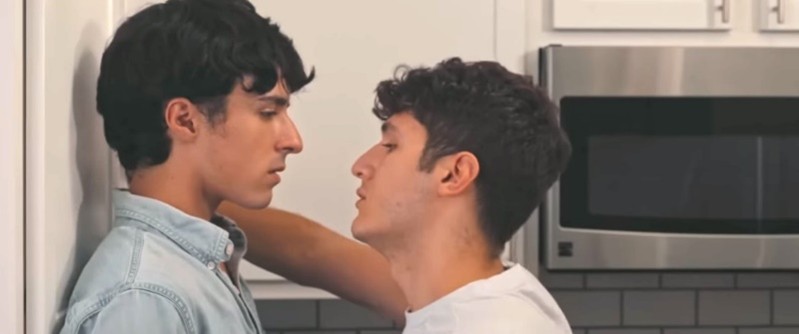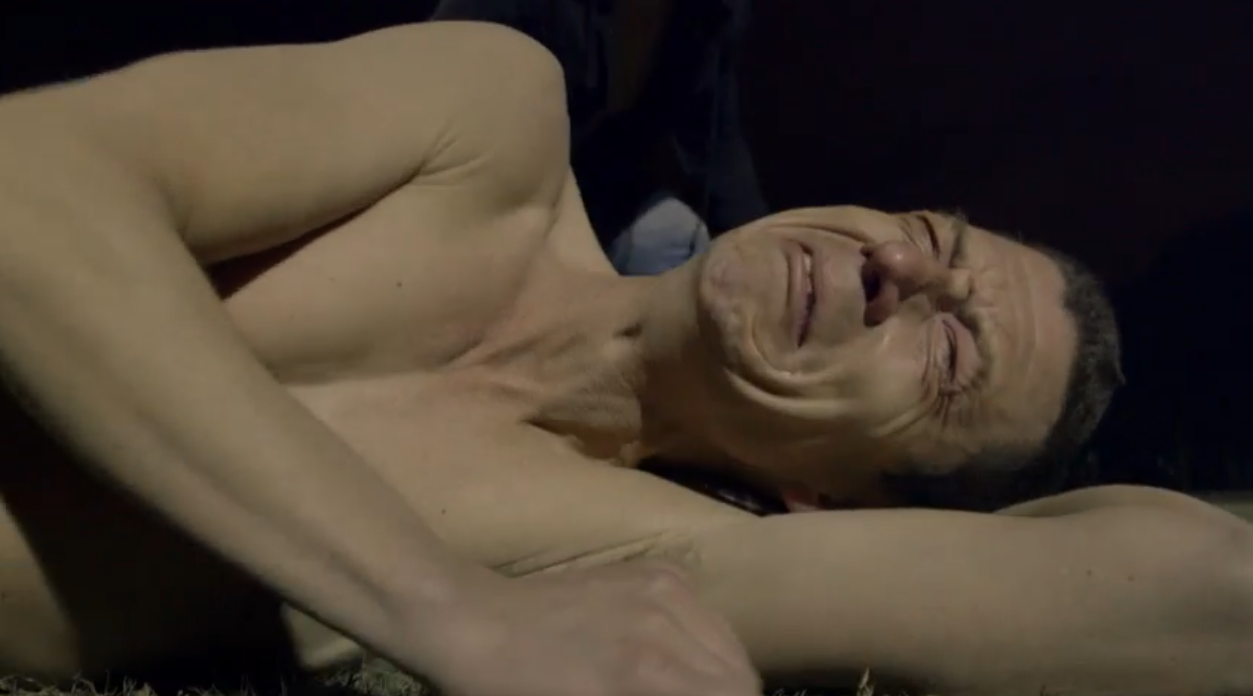double confession
by Douglas Messerli
Yarne Van Elsen (screenwriter and director) Silent Secrets / 2024 [13 minutes]
It seems almost unbelievable that the well-worn
genre of the “coming out” film, version B, has not lasted for about has now
lasted for about 25 years. And it seems almost impossible that anyone could
make a new rendition of it that is as excellent at the very earliest such
films, Get Real and Edge of Seventeen, both from 1998.
Belgian
director’s Yarne Van Elsen’s version is a slimmed down and now rather
predictable telling, although it is amazing how emotionally fulfilling the genre still feels,
perhaps because in each generation most of the gay young men and women still
must “come out” to friends, parents—and most importantly to themselves.
In this
case a young teen (in almost all such tales that young male is around 17 or 18)
Beau (Stijn Van De Bloock) is secretly in love with his best friend Liam (Cédric
Galle). Liam, however, despite his loyalty to Beau, appears to be straight,
freeing him from the constant bullying of the school “gay bashers” led by Rick
(Jarne Van Wemmel), who have targeted Liam simply because he proclaims to be an
artist (from the look of his drawing of Beau, he has a long way to go).
Just when
the two seem most to be enjoying each other’s company, the bullies enter in, in
one case taking Liam himself temporarily away as they claim him to be “one of
them.”
Liam
tries to convince Beau just to ignore them, but it’s difficult when they
manhandle him and his drawing book, often tossing his other books to the ground
as well; and it’s always easier, no matter how much you love the other, to look
on than to be the actual subject of the attacks.
At one
point, Beau even tries to tell Liam of his feelings, but Liam himself
interrupts with the deadly observation that “after all, we’re just friends.” Clearly
Beau was hoping to take their friendship to the next level.
Finally,
frustrated by his inability to verbally express his love to Liam, Beau pens a
letter to his friend, which is easily discerned by the bullies, who not only
read his pained private epistle, but disdainfully hand it over to Liam to read.
With this
action, the teen finally snaps, racing to a highway overpass to throw himself
off, Liam following him and begging him to come down, in the end pulling him off
the railing of the overpass which Beau has begun to climb.
This
time, however, Liam finally admits that that “he cannot live without him,” and
that he “loves Beau” just as much as his friend loves him, a sudden and rather
late outing for Liam, who seems only to have been able to fully realize his
full feelings when he is about to lose his friend.
There’s
nothing utterly new here, but the very survival of the battered genre
represents its power to still communicate to members of the queer community,
making it surely one of the most useful cinematic and literary forms for
representing the angst of young primarily gay boys (lesbians seldom have
appropriated this genre, although in 1995 lesbian Mitch McCabe in her
documentary Playing the Part almost played out what would have been the
first of this genre, had she not backed out of her intentions to actually tell
her family of her sexual orientation.)
Surely,
however, we keep hoping that someday people won’t have to wait until 17 to
declare their sexual feelings, but comfortably live with them, along with
family and friends, from the first age of discovery.
Los Angeles, June 22, 2025
Reprinted from My Queer Cinema blog (June
2025).












